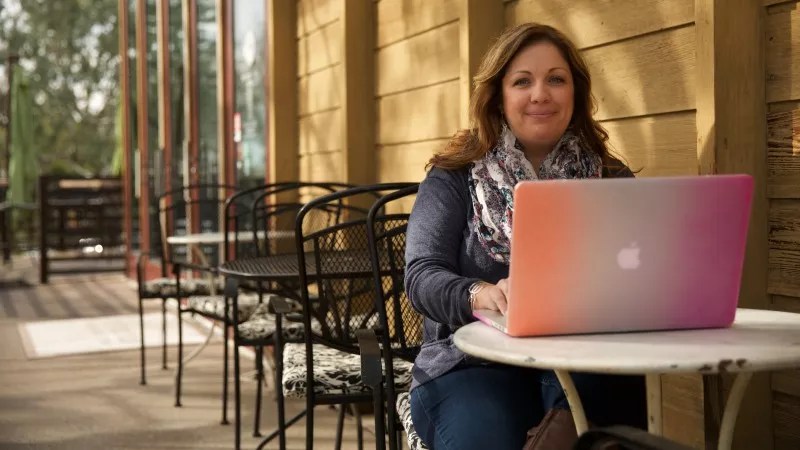

Audio By Carbonatix
Conservative Christians were among those thrilled last year when the U.S. Supreme Court ruled in favor of Jack Phillips, owner of Lakewood’s Masterpiece Cakeshop, who had refused to bake a wedding cake for a gay couple.
Now, Alliance Defending Freedom, the national organization that backed Phillips, is hoping to expand on this victory by way of another Colorado-based case. This time around, the ADF is supporting Lorie Smith, a web designer and owner of 303 Creative, in her fight against what the organization describes as “a state law provision that gags creative professionals from talking about their beliefs when explaining their business decisions.”
The United States District Court in Colorado found against Smith in September 2019. But last week, the ADF appealed that decision, potentially setting the controversy on the same path taken by Phillips.
The ADF declined Westword‘s request for an interview on this topic, instead pointing us to the page on its website devoted to the controversy, which dates back to 2016 but has received much less attention than did the Masterpiece Cakeshop matter for reasons that have everything to do with their very different origin stories.
Regarding Masterpiece Cakeshop, the aforementioned couple, Charlie Craig and David Mullins, filed a discrimination complaint against Phillips for his actions, which took place back in 2012 – and two years later, the Colorado Civil Rights Commission came down on their side, sparking a lawsuit the ADF filed on the baker’s behalf. In contrast, the ADF describes Smith’s original 2016 complaint as a “pre-enforcement challenge” against Colorado’s Anti-Discrimination Act, which its attorneys say “prohibits creative professionals from expressing any views about marriage that could indicate someone is ‘unwelcome, objectionable, unacceptable, or undesirable’ because of their sexual orientation or that suggests that the designer won’t create particular expressive works because of those beliefs.” The edict is said to prevent Smith from explaining online that she won’t “create websites and graphics celebrating same-sex weddings” because they “violate her conscience. Lorie’s faith teachers her that marriage is between one man and one woman.”

Masterpiece Cakeshop owner Jack Phillips’s case won the support of a U.S. Supreme Court majority.
Colorado Christian University file photo
According to the ADF, the key points of its arguments are: “Lorie works with all people…. She just doesn’t promote all messages”; “Free speech is for everyone, not just those who agree with the government”; “Creative professionals should be free to create art consistent with their convictions without the threat of
government punishment”; “Even though the Supreme Court condemned Colorado for acting with ‘clear and impermissible hostility’ in Jack Phillips’ case, the state continues to target Lorie because it disagrees with her religious beliefs”; “Website designers and internet companies speak freely all the time – Lorie should have the same freedom”; and “Americans have the right to challenge unjust laws. They don’t have to wait to be punished before seeking justice.”
That’s not the way the U.S. District Court saw it. The defendants in the case, including Colorado Civil Rights Commission head Aubrey Elenis and the panel’s other members, plus Colorado Attorney General Phil Weiser, were granted summary judgment largely because the case was hypothetical: Smith filed suit before posting any statement, and no state body has punished her. The unstated subtext: The ADF wanted to pick a fight, and the court wasn’t interested in participating.
The notice of appeal filed by the ADF on October 25 doesn’t include the reasons for which the foundation is objecting. However, a statement by Jonathan Scruggs, a senior counsel for the foundation, certainly does.
“Americans shouldn’t be forced by the government to create and publish websites that promote messages or causes they disagree with. That is a quintessential freedom that the First Amendment protects,” Scruggs maintains. “The court shouldn’t have assumed Lorie’s decision not to create objectionable websites was illegal without any analysis of that question, especially when other courts have clearly upheld free speech rights in this context. Colorado must allow people like Lorie the liberty to make their own decisions about which messages they will promote. Lorie is happy to design custom websites for all people; she simply objects to being forced to pour her heart, imagination, and talents into creating and publishing websites that convey messages contrary to her core convictions.”
Adds another ADF senior counsel, Kate Anderson: “Creative professionals should be free to peacefully live and work according to their faith without fear of coercion, discrimination, or intimidation by the state. Just because a multimedia artist creates expression that communicates one viewpoint doesn’t mean the government can require her to express all viewpoints, especially when that forced expression violates her religious convictions. We’re hoping that the 10th Circuit will affirm that principle just as the 8th Circuit and the Arizona Supreme Court recently did in similar cases.”
These last two disputes – Telescope Media Group v. Lucero and Brush & Nib Studio v. City of Phoenix – went the ADF’s way. That the foundation continues to energetically push such matters suggests a campaign to broaden the Masterpiece Cakeshop ruling, which attorney Paula Greisen, who represented Craig and Mullins, characterized as narrow in a Westword interview after the U.S. Supreme Court weighed in.
Smith could prove to be the avenue to do exactly that – though it could take many more years of litigation before we know for certain.
Click to read the U.S. District Court opinion in Lorie Smith v. Aubrey Elenis, et al., and the appeal notice.